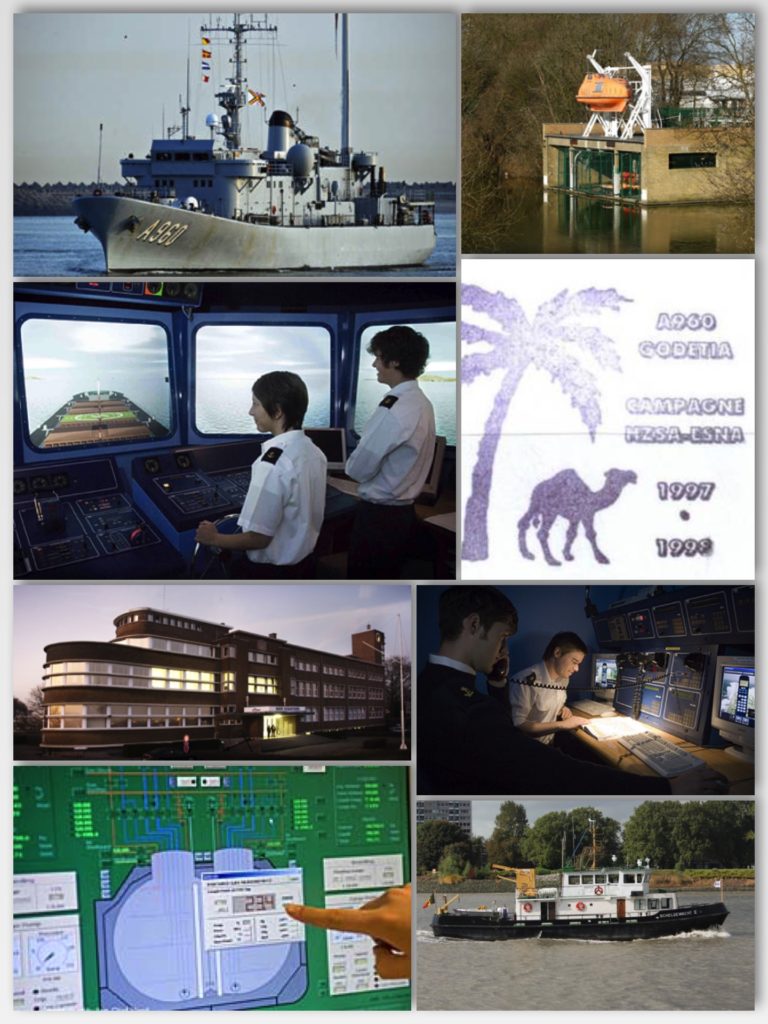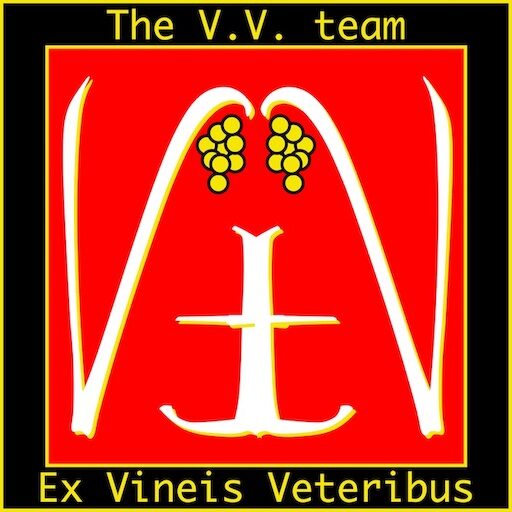1962-1982: The training days
1982-1991: Around the world on a can of oil
1991-1997: Smaller ships, harder work
1997-2001: The teaching days
The day after my interview at the Hogere Zeevaartschool. I get a phone call from one of the heads of department asking if I would mind joining the training trip on the Godetia around Christmas. It may seem like not much, but basically I have told my wife that, with the new job, I would be home for Christmas, at last, and there it goes South.
15 years almost to the day, I came back to my Alma Mater. It had changed a lot in those few years. Most of the people I remembered as staff were gone, except for Dirk, the secretary (he is probably still there some odd 40+ years on). Other people I remembered well were still there too, sometimes in upgraded functions. From a ministry of transports training facility, the school had progressed to become a modern institution depending on the department of education of the Flemish government.
Because of my tanker experience, I was put in charge of the bulk liquid cargo transport courses. The race to get up to scratch in order to give lectures within days was hectic. I had received some material from my predecessor, but that was extremely outdated and not very visual. Needless to say, the first year in the department was very stressful, but that was good stress. The second year was better as I was starting to master all the involved theory.

On top of tanker courses, I was tasked with MARPOL, some labs and deontology. But then, there were practical labs in the cargo handling simulator, radar training on the river with the “Scheldewacht”, and of course, those fun voyages on “Godetia” for sea training.
The “ammarinage” as it was still called then, was meant to last for five weeks, on two trips, out and back, to accommodate all first-year students. Officer instructors were also changed at the turn. The first time, I did the return from Dubai to Zeebrugge, with stops in Aden, Athens and Barcelona. The second time, Buenos Aires back home with stops in Rio, Fortaleza and the Canaries. The last time was special as we were only allotted two or three weeks off Scotland. We alternated nice port calls, navy style, with excursions and social time, and a lot of practical exercises while sailing. That was a surprise for me, to start enjoying free time in port. Usually on a merchant ship, in port is the time you work the longest hours and have no free time left.
I had started to do some freelance activities next to my lectures. After several internal ISM audits that I made for a harbor towage company, the management approached me with a proposition to become their DPA. I had some hesitations as the job at the school was fun, but was finally convinced by politics. A young captain two years my junior in the school, but with the proper inside connections, was promoted to lecturer over my head. That was the sign I waited for and left the public service happily to start in the private corporate world.
There are wonderful take-aways from those days: First the ability to understand all rules and bylaws in a maritime environment and the way they fit together. That homework was made necessary by the responsibility towards education. Secondly, the immense pleasure I had in leading students towards their expected results. I have to confess that for those whose ambitions and engagement were mediocre, the results may not always have been bright. On the other hand, many former students are now captains, leading staff of maritime organisations. Some are, or have been, large yacht captains and there are some that I had the privilege to coach and mentor later in their career change to yachting.
